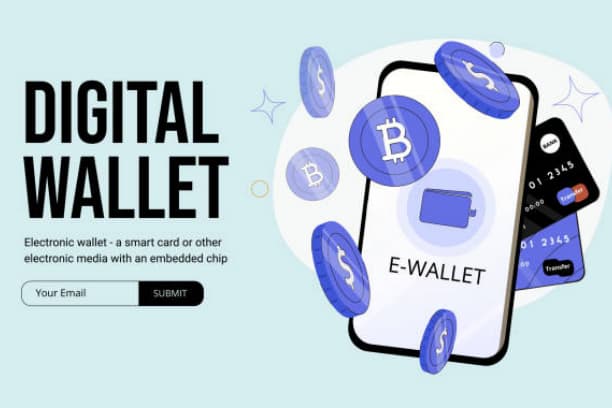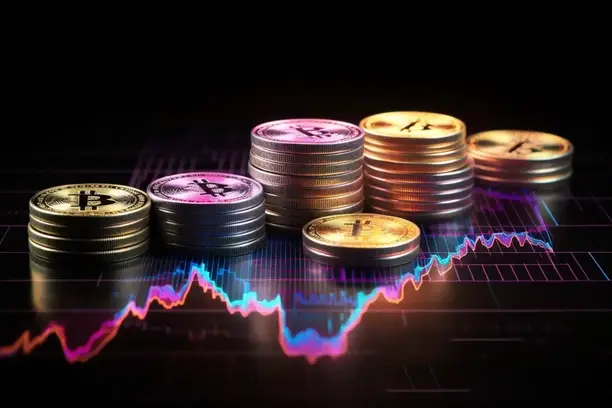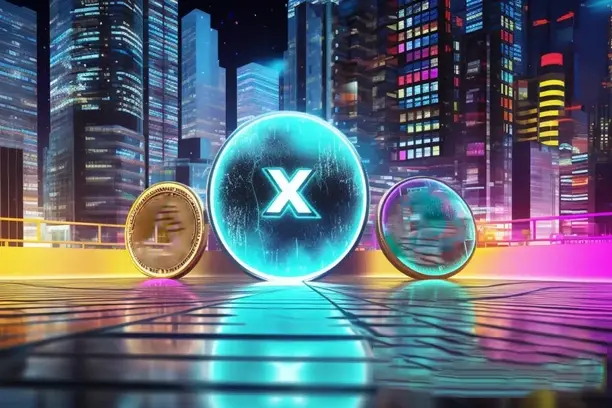As an important part of the cryptocurrency field, Decentralized Finance (DeFi) is leading the innovation of the financial industry.DeFi eliminates the intermediary role in the traditional financial system through the smart contract technology, which allows users around the globe to trade, borrow and invest in assets directly without the intervention of third-party institutions such as banks. This paper will deeply analyze the core advantages of decentralized finance and its future development space, showing readers the broad prospects of this field.

Basic Concepts of Decentralized Finance
Decentralized Finance, or DeFi for short, refers to intermediary-free financial services through blockchain and smart contract technology. Unlike the traditional financial system, which relies on intermediaries such as banks and brokerage firms, DeFi utilizes the decentralized nature of blockchain to enable anyone to conduct financial activities on an equal footing globally. Users can directly conduct transactions, lending, investing and other operations through smart contracts without having to trust third-party institutions.
DeFi's core technologies are blockchain and smart contracts. Blockchain provides the underlying foundation for DeFi to be secure, transparent and tamper-proof, while smart contracts ensure automated and de-trusted protocol execution. This enables the DeFi system to provide users with a wide range of financial services without relying on traditional financial intermediaries.
Core Benefits of Decentralized Finance
Decentralized finance has several significant advantages over the traditional financial system. Below are DeFi's key core advantages:
1. Reduced costs by eliminating the need for intermediaries
In the traditional financial system, intermediaries such as banks and securities companies usually charge high fees, and the involvement of these institutions often reduces the efficiency of transactions. DeFi, on the other hand, realizes automated execution through smart contracts without the involvement of intermediaries, thus significantly reducing transaction costs.
2. Enhancing access to financial services
While traditional financial services are often limited by factors such as geography, economic status, and credit history, DeFi breaks down these limitations. Anyone with an internet connection can participate in the DeFi platform and enjoy virtually the same services as the traditional financial system. This globalized accessibility is particularly relevant in areas lacking traditional banking services.
3. Decentralized management of assets
Decentralized finance empowers users with complete control over their assets. Through decentralized smart contracts, users can manage and add value to their assets without relying on third parties. This self-management increases financial autonomy and reduces the risks associated with mishandling by third parties.
4. Greater transparency and security
All transactions on the DeFi platform are recorded on the blockchain and can be viewed by all participants, increasing the transparency of the system. This transparency effectively reduces the risk of fraud and mishandling, and users' assets and trading behavior can be more credibly safeguarded.
Key Applications of Decentralized Finance
DeFi has a wide range of applications that cover several financial areas. Here are a few of the most common DeFi applications:
1. Decentralized Exchange (DEX)
Decentralized exchanges (DEXs) allow users to trade digital assets directly with other users without relying on a centralized trading platform. For example, decentralized exchanges such as Uniswap, SushiSwap, and others utilize automated market maker (AMM) mechanisms to make trading more efficient and de-trusted.
2. Decentralized lending platforms
DeFi lending platforms such as Aave and Compound enable users to borrow assets without the need for traditional financial institutions. Users can borrow money by pledging their crypto assets or earn interest by providing liquidity. The advantages of this type of lending are fast lending, transparent interest rates, and no cumbersome approval process.

3. Decentralized insurance
DeFi insurance platforms such as Nexus Mutual provide users with decentralized insurance services. Users can purchase insurance products through smart contracts and receive payouts based on specific events as they occur. This decentralized insurance avoids the cumbersome review and claims process of traditional insurance companies and offers a high level of transparency.
4. Stablecoins and decentralized payments
Stablecoins (e.g. DAI, USDC, etc.) are a common class of crypto-assets in DeFi that are usually pegged to fiat currencies and maintain a relatively stable value. They are widely used in decentralized financial systems as payment tools, medium of exchange and stored value tools. Decentralized payments can not only reduce the cost of cross-border payments, but also effectively avoid the risk of exchange rate fluctuations.
The future scope of decentralized finance
With the continuous progress of blockchain technology and the gradual improvement of global financial regulation, decentralized finance will usher in a broader development space in the coming years. Here are a few DeFi trends to watch out for:
1. Further compliance
While DeFi is currently in a relatively relaxed regulatory environment, it will likely face stricter compliance requirements in the future as the global focus on cryptocurrency and blockchain technology deepens. How to balance decentralization and compliance will become an important challenge for the DeFi platform.
2. Cross-chain interoperability
Currently, most DeFi applications run on the Ether blockchain, but with the development of a multi-chain ecosystem, future DeFi applications will focus more on cross-chain interoperability. By enabling interoperability between different blockchains, the DeFi platform can enable more efficient and resilient services.
3. Integration of DeFi with traditional finance
As traditional financial institutions gradually recognize the potential of DeFi, the integration of DeFi with the traditional financial system may occur in the future. For example, some banks and securities firms may draw on the decentralized nature of DeFi to launch more flexible and low-cost financial products.DeFi's innovative ideas may drive the digital transformation of the traditional financial system.
4. Enhancement of the user experience
With the development of technology, the user experience of the DeFi platform will be further enhanced. The future DeFi platform will focus more on ease of use and security, lowering the threshold for ordinary users to participate, so that more people can easily participate in the world of decentralized finance.
concluding remarks
Decentralized finance has not only changed the way financial services are provided, but also brought a more open and innovative financial experience to global users. With the continuous progress of technology and the growth of market demand, the application scenarios of DeFi will be further expanded, bringing profound changes to the traditional financial system. For users, mastering the basic principles and applications of DeFi will provide more choices and opportunities for future investment and wealth management.







